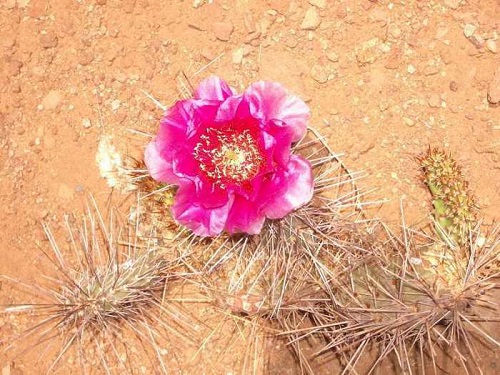FWP:
SETS == IDIOMS;
PARALLELISM
CLOTHING/NAKEDNESS: {3,5}
CHAK-E GAREBAN: {17,9}
SHAME/HONOR: {3,5}
The parallelism of the two lines invites (and compels) us to decide for ourselves whether they represent similar cases or opposite ones. Here, it seems, the decision could go either way. If we decide that the cases are similar, as the commentators do, then we conclude that the 'real' home, the authentic and proper place, for the collar is the garment-hem; Josh even uses the word va:tan . As the commentators explain, this is because the collar is not truly itself until it has been ripped open so totally that it sags down to the area of the garment-hem. (I can't help imagining the peeling of a banana.) Or, alternatively, the collar has been shredded into so many pieces by the lover's fingernails that it disintegrates, and its tattered remains drift down to the garment-hem.
There's nothing implausible about this view, and in fact we know that the garment-hem often has a floral border like a garden-- and sometimes even one made by the lover himself. In {233,6}, for example, the eyelashes use drops of blood to trace out delicate decorations on it: chaman-:taraazii , 'garden-embroidery'. In the verse after this one, {87,2}, we see that the garment-hem has absorbed a good deal of the lover's blood, so that even if not actively decorated, at least it must be red like a rose-garden.
Still, I prefer the other, oppositional reading. The rose only finds honor when it's at home (and what could be more manifestly at home than a gul in a gulshan ?). By contrast, the collar is a disgrace unless it's as far from its original 'home' as it can possibly get-- all the way down from the neck to the ankles (in the case of a long robe), in the garment-hem, barely clinging there before falling to the ground completely. Thus the rose is queen in its own bower, like its human counterpart the beloved; and the collar is a wanderer, like its owner the lover. And in fact the collar perhaps wanders even beyond the bottom of the robe, for daaman also means the foothills of a mountain (see the definition above).
And of course there's plenty of wordplay. The idiomatic kyaa ;xaak , for which I can't think of any better translation here than something like 'what the hell', literally means 'what-- dust!', with a kind of emphatic, indignant rejection; for another example of this idiomatic expression, see {200,5x}. And of course 'dust' has a fine affinity with the dirt of a garden.
Meanwhile, the lover has nang -- a word
for disgrace and infamy that inevitably draws in its train the related nangaa ,
which means both 'naked' and, secondarily, 'shameless' (Platts p.1156). The
mad lover who has ripped his collar down to his hemline is surely something
close to naked. Nakedness is disgraceful to a normal person, but of course
honorable in the eyes of a lover. (For more on the complexities of nang , see {3,5}.)

Nazm:
The collar will be at the garment-hem when it will be ripped open. And having been ripped open, it will acquire similitude with a rose, and will make the garment-hem into a courtyard of the garden. (86)
== Nazm page 86